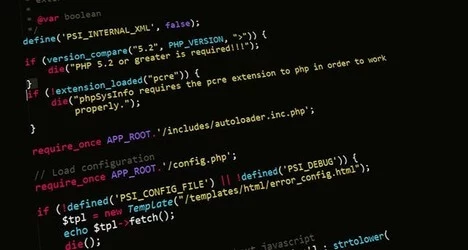AI: Adapting to the Human Resources Landscape
Add bookmarkArtificial intelligence or “AI” is changing the way we live our lives from the apps on our smart phones that predict the next news article we would be most interested in to the customer service bot we chat with when our smart phones don’t work. AI is infiltrating almost every industry and business function including Human Resources in areas such as recruiting, onboarding, and training. AI algorithms are able to process massive amounts of data into information that can then be analyzed into knowledge. While data analytics and candidate screening chat bots are the most familiar AI applications in HR, there is an emerging AI driven renaissance in skills training.
Learning the Learner
According to a 2016 report in Training, 59% of all skills training was delivered using online technology, up 5% from 2015. AI is at least partially responsible for this rise as the ability to algorithmically analyze and assess learner engagement and competency increases as machine learning applications such adaptive assessment and content delivery enter the market.
Adaptive assessment tracks and measures a learner’s competency to deliver the test questions that are, to paraphrase Goldilocks, just right. If a learner answers a question incorrectly, an easier question is provided next and if they answer two or three question in a row correctly, they are given a more challenging question.
Adaptive content algorithms analyze a learner’s work to deliver the right content at the right time to speed up the learning process. If I can get just a little academic here, adaptive AI based training applications determine what the Russian psychologist Lev Vygotsky referred to as their zone of proximal development; the level at which they can no longer continue to progress using their inherent knowledge and require the assistance of a teacher, which in this case are AI algorithms tracking progress waiting for the learner to flounder.
Real Life Training without the Real World
The cutting edge of AI based skills training involves more than just algorithms that analyze the test results of learners. A Toronto, Canada based firm, Ametros Learning has developed a platform that utilizes the natural language processing power of AI to create deeper more high-impact experiential learning. While most AI training applications measure knowledge such as how does a process work, what should you do, and so on, what is not measured or even addressed is situational context and the emotional, social, communicative, and cognitive intelligence that comes into play in the execution of the vast majority of skills. Ametros Learning has developed a simulation platform that allows the learner to practice skills in a risk-free, situational context. Learners interact with artificially intelligent characters in real-life settings.
Natural language based AI simulations will make any learner whose career relies on human interaction in some fashion (I am struggling to think of one that does not) more capable of executing the skills of their function in real-life circumstances. For example, financial planners will be better at determining the right investment mix for a client if their emotional intelligence is better at determining the needs and fears of their client. A lawyer will be a better lawyer if they can recognize the linguistic cues of an unsure client. The list of industries and professions is almost endless.
We learn best by doing – we learn to manage people by managing people; we learn to motivate and lead, by engaging people through language. The irony is that the internet, designed for interaction, is used as a broadcast medium by most online training course designers. While everything from shopping to driving is being revolutionized by AI, online education holds fast to the PowerPoint slide and the discussion board.
This is where AI in the form of machine learning and natural language simulations come in. AI is transforming the way we train and learn online. Trainers can tailor content and assessment to the individual, as well as create rich, simulated learning environments where the skills such as empathy and collaboration can be practiced and measured.
These so called soft-skills are quickly becoming differentiating and mission critical skills in a world awash in AI. AI in any of its various forms cannot be emotionally or socially intelligent, and cannot equal the human being in communicative intelligence such as the ability to persuade, console, motivate, or mentor. Skills training through natural language based AI allows trainers to teach these human intelligences in an unlimited set of situations and circumstances from management essentials to customer service. Natural language based AI simulations will help prepare an organization’s stakeholders for a disruptive world.
The AI Landscape
AI is not going to replace the trainer. We tend to think of AI as autonomous – as the robots that are replacing human beings on production lines – as the autonomous driver of cars and trucks. The most powerful applications of AI, however, work in conjunction with human intelligence to produce better results than could be achieved by either AI or human beings on their own. An excellent trainer armed with adaptive and experiential tools is exponentially more effective.
This article was written by Robert Clapperton with Ametros Learning Product Development.
















